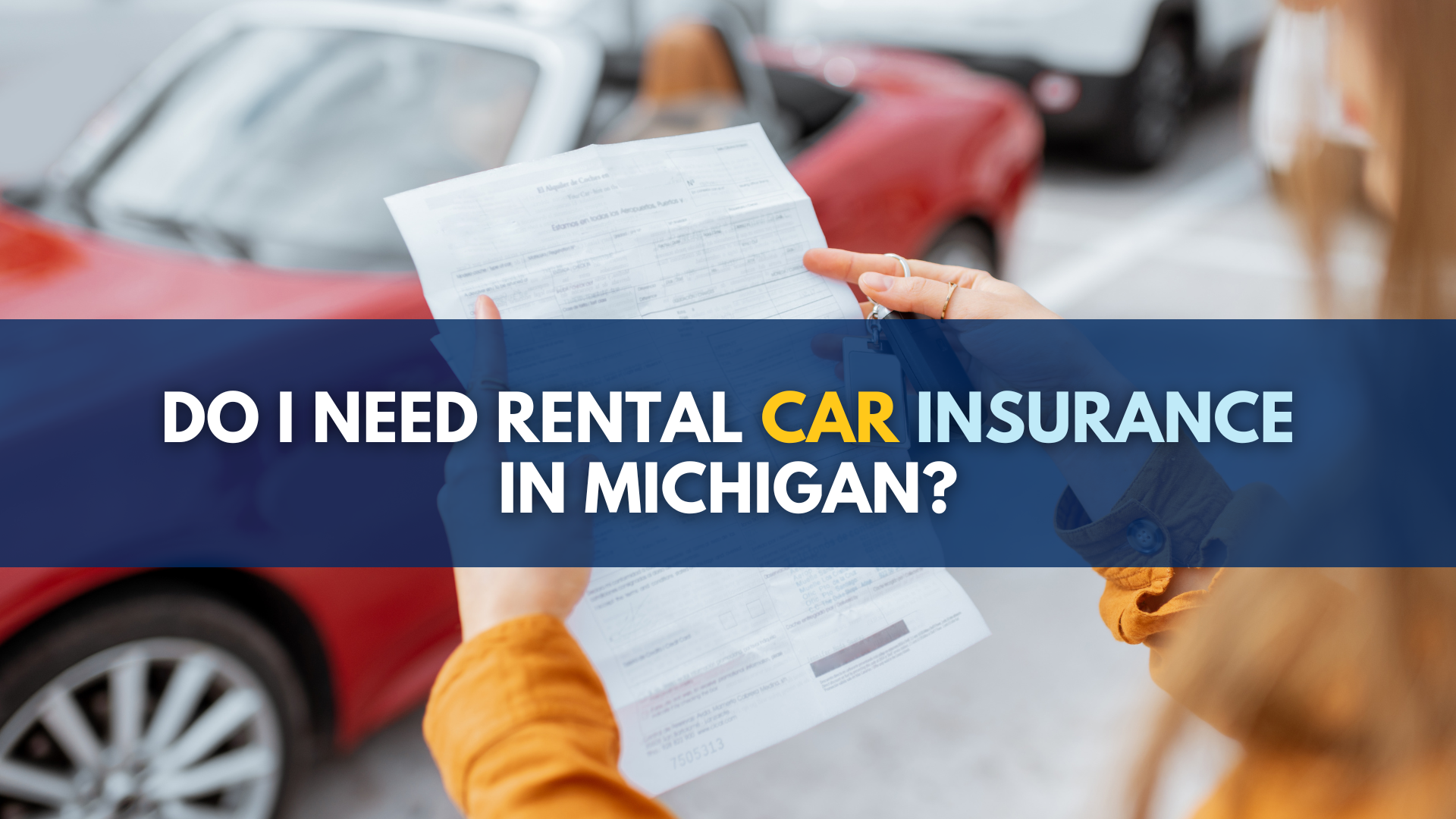
Our recommended car insurance coverage for the Michigan No-Fault law includes choosing: (1) the unlimited No-Fault PIP medical benefits option; (2) the bodily liability insurance option with $500,000 and $1 million limits; and (3) uninsured and underinsured motorist coverage with $500,000 limits.
Michigan drivers have important choices to make.
First, they must choose one of the following levels of protection for No-Fault medical benefits: (1) $50,000 if you’re enrolled in Medicaid; (2) $250,000; (3) $500,000; (4) unlimited; or (5) opt-out of No-Fault medical coverage altogether if the driver is on Medicare.
Second, they must choose the amount of liability coverage (also known as bodily injury liability insurance) they wish to purchase.
And, third, they must choose whether and how much “uninsured motorist” and “underinsured motorist” coverage they will want.
What is our recommended car insurance coverage?
Listed below our recommended car insurance coverage options to purchase along with information on why to choose those options:
1 – Recommended PIP car insurance coverage – Choose the No-Fault PIP option with unlimited medical benefits (and no Managed Care Option)
- Unlike private health insurance or Medicaid or Medicare, unlimited No-Fault PIP medical benefits provide lifetime, and life-saving care for catastrophic accident victims such as survivors of traumatic brain injuries and spinal cord injuries.
- Unlimited is the only coverage level that provides catastrophic injury coverage.
- It ensures that accident victims will have access to the best medical treatment, care, services and specialists that are reasonably necessary to their care, recovery or rehabilitation.
- There are far too many critically important medical services that are not available or that are limited and will not be provided under health insurance, Medicaid or Medicare. Those may include: Residential care; Attendant care by an agency; In-home attendant care by a family member; Prescriptions; Hospitalization; Doctors/lab; Rehabilitation services; Case management; Transportation [possibly including medical mileage]; Home purchases/modifications; Prosthesis; Equipment; and, Vehicle purchases/modifications.
- The medical costs associated with serious and catastrophic injuries from a motor vehicle accident (especially those requiring emergency room visits, hospitalizations and surgeries – not to mention lifelong care) can and will easily exceed the dollar-amount coverage levels, leaving victims to fend for themselves to pay what could be hundreds of thousands or millions of dollars in medical expenses over their lifetime.
- Unless you enjoy the bureaucratic red tape of your health insurance plan’s HMO – no doctor of choice, being able to see only doctors that were selected and hired by the insurance company, having to get written preauthorization from the insurance company for all visits, procedures, surgeries and treatment (or being forced to pay out-of-pocket as a penalty for not getting preauthorization) – then under no circumstances should you opt for the Managed Care Option.
2 – Recommended car insurance coverage for liability protections – Choose limits of at least $500,000 and $1 million
- Drivers in Michigan should purchase bodily injury liability insurance/residual liability insurance with limits of $500,000 and $1,000,000.
- The financial risk from being liable for causing a motor vehicle accident that injures or kills someone involves being held liable for pain and suffering compensation and excess wage loss as well as potentially being held liable for all of the current and future medical costs that a crash victim incurs that exceed the No-Fault medical benefits coverage level in the policy through which he or she is claiming benefits. For example, if you injure someone who only has $50,000 in No-Fault medical because he or she is on Medicaid and if he or she is catastrophically injured – resulting in $100,000’s or $1,000,000’s in medical bills – the person can sue you for any medical expenses over the $50,000 level.
- You will be very pleasantly surprised at just how inexpensive higher liability levels are.
- Do not be tempted to go with the $250,000 and $500,000 that is required by the No-Fault law – or by the lower limits of $50,000 and $100,000 that is permitted by law. Either choice is likely to leave you exposed financially in the event that you cause a motor vehicle accident that results in another person’s injury or death.
3 – Recommended car insurance coverage for PIP medical – Avoid the Managed Care Option when choosing the No-Fault PIP option with unlimited medical benefits
- The Managed Care Option will allow the insurance company to call the shots concerning your medical care after a car accident. You’ll be forced to see doctors selected and hired by your insurance company. No longer will you be able to get medical care and treatment from the doctors you know and trust. And when you need a certain procedure, surgery, therapy or medication, you won’t be able to get it unless and until you first get your insurance company’s permission. You, not the insurance company, should be in the driver’s seat when it comes to your health and medical care after a car accident. That’s why we recommend that Michigan drivers decline the managed care option when they choose the No-Fault PIP option with unlimited medical benefits in their auto insurance policies.
4 – Recommended car insurance coverage for property damage protection – Choose a limit of at least $100,000 (for out-of-state accidents)
5 – Choose mini tort or limited property damage coverage with a $3,000 limit
- The mini tort maximum recovery amount for vehicle damage is $3,000.
6 – Recommended car insurance coverage for uninsured motorist protection – Purchase with limits of at least $500,000
- This provides an invaluable source for recovery if you’re injured by a driver with no liability coverage or by a hit-and-run driver. In either instance, without “uninsured motorist coverage,” you would be unable to recover any of the pain and suffering compensation and “excess” medical benefits and lost wages that you are entitled to. This added recommended car insurance coverage is very inexpensive and very important.
7 – Recommended car insurance coverage for underinsured motorist protection – Purchase with limits of at least $500,000
- Like uninsured motorist coverage, underinsured motorist coverage insurance provides a source of recovery for pain and suffering compensation and “excess” medical benefits and lost wages if the at-fault driver who injured you has only minimal liability insurance coverage. As with uninsured motorist above, UIM is very inexpensive and very important which is why it’s one of our recommended car insurance coverages. Most drivers do not have enough insurance to pay for all of the harms and losses if they cause.
8 – Recommended car insurance coverage for Personal Umbrella Liability coverage – Purchase with limits of at least $1 million
- All drivers face substantial liability risk if they cause a serious car accident because – as the “at-fault” driver – they can be sued for excess medical expenses. A very serious crash can add potentially millions of dollars in risk exposure for an at-fault driver and his or her assets. That’s why we also recommend that all drivers purchase a Personal Umbrella Liability coverage policy to protect themselves, their family members and their family’s personal assets.
- An umbrella liability policy provides an important additional layer of lawsuit protection. Specifically, umbrella liability coverage will provide additional coverage up to the limit in the umbrella policy.
- Umbrella liability coverage is also very inexpensive. You can buy several million dollars worth of umbrella coverage for a few hundred dollars, making umbrella liability coverage – along with uninsured and underinsured motorist coverage – one of the best and least expensive things you can do to properly protect yourself and your family.
9 – Recommended car insurance coverage for collision protection – Purchase with a maximum deductible of $1,000
10 – Recommend car insurance coverage for comprehensive – Purchase with a maximum deductible of $1,000
Why we’re sharing our recommended car insurance coverage
Choosing the right options for your policy is a very important decision which is why we are providing our recommended car insurance coverage options to ensure you are protected. We understand the temptation to choose a lower medical amount on your policy to try to save money. The danger is that if a driver selects any medical level other than “unlimited,” then he or she is essentially playing Russian Roulette and betting that if they are seriously injured in a future motor vehicle accident, that their medical bills will fall within the amount they purchased.
If you are choosing a lower coverage amount of $50,000, $250,000 or even $500,000 and suffer a very serious injury, such as a back injury that requires surgery, a brain injury, or a spinal cord injury, the money will likely be extinguished long before you make a recovery.
Private health insurance and Medicare and Medicaid either have limitations on the scope or amount of treatment, or do not cover at all important and necessary medical care for many injuries. Any medical bills that are incurred over that medical level amount selected on your policy will be your responsibility, which poses a serious risk of wiping out personal savings and even forcing people to declare bankruptcy because of crushing medical debt. He or she will also have to find a way to continue paying for needed medical care – which in the case of seriously or catastrophically injured victims could run into the hundreds of thousands or even millions of dollars.
When compared to disappointing savings you will receive choosing lower medical levels on your policy, it seems clear that the unlimited medical option for the PIP portion of your auto No-Fault policy is the right decision for almost everyone. As we discussed in our blog post, “Michigan Auto Insurance Reform Savings Debunked,” the promised “savings” from giving up unlimited No-Fault PIP medical benefits are far from a “sure thing” and for many, many drivers they will never materialize.
We want Michigan drivers to be able to make informed decisions to best protect themselves and their families.
Injured in a motor vehicle accident? Call Michigan Auto Law first
If you have been injured in a motor vehicle accident or if you have any questions about the recommended car insurance coverage we provided, you can call toll free anytime 24/7 at (800) 968-1001 for a free consultation with one of our experienced attorneys. There is absolutely no cost or obligation. You can also get help from an experienced accident attorney by visiting our contact page or you can use the chat feature on our website.



